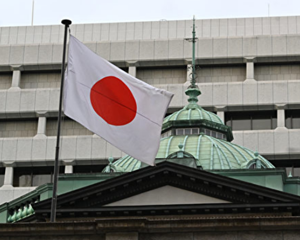Japan's central bank ended eight years of negative interest rates on Tuesday, ringing in a new era of monetary policy in the country.
本周二,日本央行结束了长达八年的负利率政策,宣告日本货币政策进入了新时代。
It's the first rate hike in 17 years.
这是17年来的首次加息。
But the Bank of Japan is keeping rates around zero, moving cautiously amid the country's fragile economic recovery.
但日本央行仍将利率维持在零附近,在日本脆弱的经济复苏之际选择谨慎行事。
Tokyo's central bank is the last in the world to exit negative rates,
日本央行是世界上最后一个放弃负利率的央行,
ending a time where global policymakers used cheap money and unconventional monetary tools to try to prop up growth.
从而结束了全球政策制定者试图通过廉价货币和非常规货币工具来提振经济增长的时代。
The BOJ on Tuesday also scrapped a policy aimed at capping long-term interest rates around zero, known as yield curve control.
此外,日本央行在周二还取消了一项旨在将长期利率控制在零附近的政策,即收益率曲线控制。

Though the bank said it will keep buying "broadly the same amount" of government bonds as before and ramp up purchases, in case yields rise rapidly.
尽管该银行表示,将继续购买与以前“大致相同数量”的政府债券,并在收益率迅速上升的情况下加大购买力度。
A spike in bond yields would make funding Japan's huge public debt more expensive.
债券收益率的飙升将使日本巨额政府债务的融资成本更高。
The country's public debt is already twice the size of its GDP and the largest among advanced economies.
日本的政府债务已经是其GDP的两倍,是发达经济体中规模最大的。
The central bank is expected to keep monetary conditions loose. And no major hike in household mortgage rates or funding costs are expected.
日本央行预计将会维持其宽松的货币环境,而家庭抵押贷款利率或融资成本也不会大幅上升。
But an end to the world's last remaining provider of cheap funds could jolt global financial markets.
但是,这个世界上仅存的廉价资金提供者的终结,可能会震动全球金融市场。
After amassing overseas investments in search of yields, Japanese investors may now look to shift money back to their home country.
在积累了大量海外投资以寻求收益之后,日本投资者现在可能会考虑将资金转移回本国。












